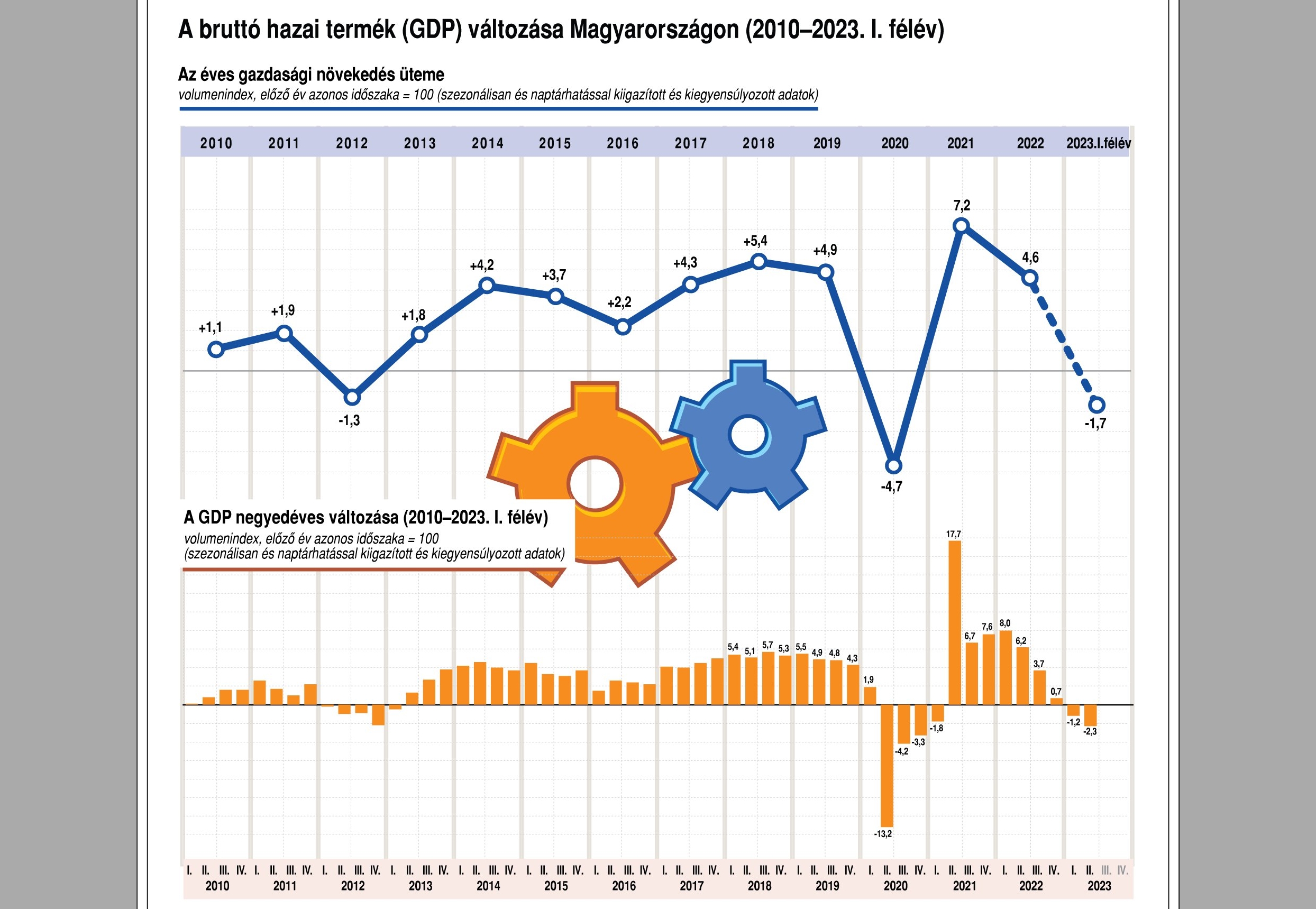
GDP growth remained negative in the first half of the year.Continue reading

Despite the war and sanctions, Moody’s continues to recommend Hungary for investment. In its latest report, the international rating agency has confirmed Hungary’s Baa2 rating with a stable outlook, the Ministry of Finance announced in a statement. They said that Moody’s is positive about the Hungarian economy returning to a high growth path next year, while the government is significantly reducing the budget deficit and public debt.
The rating agency expects the Hungarian economy to grow by three percent in 2024, supported by strong exports, high investment, and consumption, which is booming as real wages rise. According to the report,
the growth outlook is also underpinned by a well-educated workforce, a competitive tax system, and developed infrastructure.
Moody’s is positive about the government’s commitment to reducing the budget deficit and public debt, noting that the debt-to-GDP ratio can be reduced in a sustainable manner.
Hungary’s energy dependency is listed as a risk, but the document highlights that Hungary has made significant improvements in this area compared to 2022, as reflected in the balance of payments. The challenges include the ongoing debate on the EU funds, but Moody’s analysts see Hungary as having access to the resources it is entitled to in the future, adding that at the same time, the country has the financial means to pre-finance projects related to these funds.
The Finance Ministry pointed out that
all three major credit rating agencies currently rate Hungary two notches higher than at the beginning of the last decade.
This means that Hungary continues to be recommended for investment by the rating agencies and that they remain confident in the Hungarian economy even after a pandemic and during a war in the neighborhood.

GDP growth remained negative in the first half of the year.Continue reading
Commenting on the rating, Economic Development Minister Márton Nagy highlighted in a statement that
Hungary’s economy is strong, and resilient to a series of crises and economic shocks that have been going on for years.
Since the pandemic, the government has been working hard to protect families, as well as the investment and export-driven economy. The measures are working effectively and as a result, international investor and market confidence in Hungary is undiminished. Nagy emphasized that the Hungarian economy is strong, growing by 4.6 percent in 2022, even in the midst of war and the energy crisis. Thanks to this, the country’s catching-up with the EU’s development has not been broken, but has continued to increase by 2.3 percentage points, ahead of Portugal and Greece in EU comparisons.
The Minister of Economic Development added that
in 2023, the government’s main objective is to avoid recession, bring inflation down to single digits, achieve real wage growth as soon as possible, restoring growth as consumption picks up again.
The government remains committed to the stability and strengthening of Hungary’s financial position and to maintaining tight cost control. They also plan to reach a low deficit target by steadily reducing the level of public debt.
Regarding inflation, it has been brought down by measures such as the online price monitoring system and mandatory promotions in shops, the rate now more than a third lower than its peak in January. The government’s economic protection measures have been protecting jobs, with nearly 4.8 million people now employed, while the number of registered jobseekers is at an all-time low, further strengthening the foundations of the work-based society.

According to the latest data, average gross wages rose by 16 percent on a yearly basis.Continue reading
Featured photo via Twitter/Moody’s Investors Service
Array
(
[1536x1536] => Array
(
[width] => 1536
[height] => 1536
[crop] =>
)
[2048x2048] => Array
(
[width] => 2048
[height] => 2048
[crop] =>
)
)